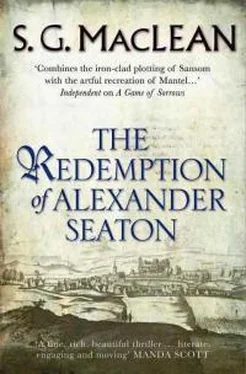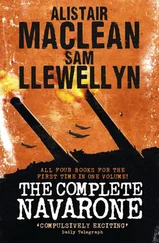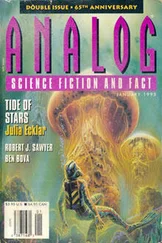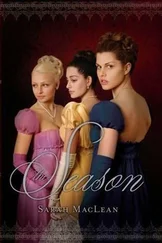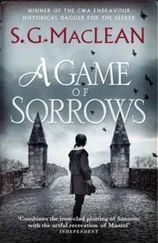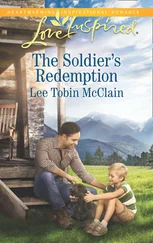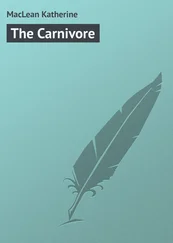‘Then I am sorry for it. But do nothing further to kindle their suspicions.’
‘Nor their fires?’ I asked.
‘No,’ he replied grimly, ‘nor their fires.’ He was silent for a moment, but I knew he had more to say. He cleared his throat, still more uncomfortable than before. ‘I think, and I hope I may be wrong in this, and that you will forgive me for it, but I think you have it in mind to seek out for yourself the killer in our midst.’
‘You are not wrong.’
‘Can I ask your reasoning?’
I thought of Patrick Davidson, not on that last night of his life, when he had made the desperate appeal to me that I had chosen not to hear, but in all the time before that, all the weeks he had been in Banff before his death. I had never sought out his company in all that time. I had avoided it, and would have done even had Jaffray not been away in the South. The truth, which I had determinedly turned my face from these last few days and weeks, was that the arrival of Patrick Davidson had discomfited me; for he had been what I should have aspired to be. Neither high nor base born, he had been educated and travelled far afield in pursuit of his education and his passions, proper passions. He had pursued a calling many thought beneath him for his love of it. He had been happy, kindly, well lettered and well loved. In another life, in another world, at another time, like Charles Thom, how gladly I would have called him friend. But that life and time and world had gone long before Patrick Davidson ever returned to the place of his childhood. And so I turned my face from him. To the end, I had turned from him. I was determined to be able to face him now, if not in this life, then in the next. How could I make Thomas Stewart understand this?
I could not, and I did not try. Instead, I told him what had once been a part of the truth. ‘When Charles Thom was charged and imprisoned over this murder, Jaffray and I swore we would not rest until we had him freed. Well, he is freed now, and that is enough for the doctor – he has concerns enough in the world – but I am too far in to come out now.’
The notary did not like what he heard. He began to speak slowly, deliberately. ‘Alexander, I must counsel you to leave off from this task. There are snares everywhere in this business. If you are not caught by cries of witchcraft, you may well be taken as a plotter and a spy.’
‘A spy? How so?’
‘The townsfolk may well hold Marion Arbuthnott to have been a witch, and Patrick Davidson to have been a victim of her craft, but I think it much more like he was a spy, and she his willing helper, for it is certain if he was not involved in the one it was the other.’
‘You are wrong,’ I said. ‘He did love her.’
He looked at me sceptically, puzzled as to how I had come by such assurance. He evidently did not have the time to waste on such matters. ‘Whether he loved the girl or not is of little moment. What should concern you is that by meddling too far in his affairs you might well find yourself tainted by them.’
‘Is it the office or the man who tells me that?’ I asked.
He replied firmly, quietly. ‘It is both.’
I took flint and lit the tallow candle, for little light reached my chamber at this time of the day. I wanted to see the notary’s face. ‘Thomas, you yourself were amongst those who involved me in the matter of Patrick Davidson’s maps. How else would I have known of their existence, or of fear of plots, other than those which are constantly with us? How can you now accuse me of something that you know was none of my doing?’
‘I accuse you of nothing,’ he said, ‘but some of your encounters on your trip to Aberdeen were ill-advised.’
I could not follow him. ‘In Aberdeen I lodged with an old friend, a respected lawyer, known in this town and in this house, and to you yourself.’
He nodded. ‘William Cargill is a good man.’
I was no longer in the mood for platitudes. ‘I achieved the purposes of my visit as far as the school here is concerned, and I fulfilled the commissions on which I was sent by this town. I cannot see where the fault is to be found in that. And if it is a question of George Jamesone, the artist, then you must refer to the provost, for I–’
He cut me short. ‘It is not of the artist, or Principal Dun or Doctor Forbes or any of those citizens of whom I speak. You will not tell me, I hope, that you met with Matthew Lumsden on the business of this town?’
‘Matthew Lumsden? What is Matthew Lumsden to do with this?’
‘That is what I would have you tell me.’ Here I saw we had reached the point of the interview.
Apprehension grew within me. ‘Matthew Lumsden is my friend,’ I said. ‘He has been so for many years.’
‘Matthew Lumsden is an adherent of the Marquis of Huntly. He has raised his head and spoken too loud and too often on matters he would have been wiser to keep to himself. His opinions are known and his religious adherence guessed at. Circumstanced as you are, he is a man whose company it would be better not to keep.’
I got up and walked over to the door; I opened it. ‘He is a man who has not sold his honour for office. I will choose my own friends, Mr Notary.’
If the notary made any reply as he left, I did not hear it. As the door closed behind him, I felt I had lost a friend I had never properly valued, and I was sorry for it, but my words could not be retracted. My clothes were still damp from the journey back from Darkwater, my head was aching and I was beginning to shiver. I took the stopper from the bottle the crone had given me and drank down a mouthful of the bitter liquid. As I sank onto my bed, I realised, too late now, that Thomas Stewart should not have known my movements in Aberdeen at all.
The voice came to me as from a distant place. It entered my dreams and called me from them. For without cause have they hid for me their net in a pit, which without cause they have digged for my soul . Clear and pure, the voice came closer. It was joined by other voices, many voices, solemn, low, in unison, following the words exactly. The voices were marching on me, chanting. I stumbled from my bed, covered still in the warm damp of my clothes. But in mine adversity they rejoiced, and gathered themselves together: yea, the abjects gathered themselves together against me, and I knew it not: they did tear me and ceased not . Closer still came the voices. My eyes not properly opened, I felt my way from my chamber and out onto the top of the stairs. Four steps down, not yet fully out of my slumber, I pressed my face to the small window set deep in the outer turnpike wall. The crowd, for it was indeed a crowd, snaked from its tail, just clearing the kirkyard gate, by way of Low Shore and the western end of the kirk, round to its head at High Shore, where it would soon pass beneath, far beneath, my window. Behind the bier, she downcast and he defiant, walked the apothecary and his wife, and at the very head, as I had known he must be, was Charles Thom. His voice, always a gift from God, stood forth alone, reaching to the Heavens: Lord, how long wilt thou look on? Rescue my soul from their destructions, my darling from the lions . Alone, high above them and in a quiet voice, I took up the psalm, word for word, note for note, and joined with all those other voices in the commencement of the lykewake of Marion Arbuthnott.
I had to find another stand of clothes – I could not go out in my nightshirt, yet I could scarcely remain like this. The warmth of my body from the bed had dissipated and the cold of the clothes cloyed at my every inch of skin. My other vestments, beaten in a tub just yesterday by the maid, hung yet before the kitchen fire, sending steam still to the ceilings and rolling back down the wall. I returned to my room and brought the key down from the mantelshelf where it had lain for nine months, disturbed only by the cleaning hand of Mistress Youngson or her maid. I crouched by the bed and dragged out the kist. The lock was stiff, but gave way at the third twist of the key in my hand. I opened the lid quietly, fearful, foolishly, that I should be discovered in the act. And yet in but half an hour I would stand before many who knew me in that which I now hesitated to move from its tomb. I lifted the papers first – why should I have kept my sermon? And there beneath, pristine, made from love and worn but once, were the night-black drapes of a man of God, the cloak and suit of fine English cloth, with the velvet collar, made up for me by Banff’s finest tailor at the behest of all my kind friends here: Gilbert Grant and his wife, Jaffray, Charles, who had not two ha’pennies to rub together, and the parents of some of my scholars, who often had none. I had stood in my fine new clothing before the brethren at the Presbytery of Fordyce on that June night, and heard the laird of Delgatie pronounce my doom. Had I paid for them myself, the garments would have been long since consigned to the fire, but as I had not they had remained there, locked away in the kist beneath my bed, a hidden symbol of my fall. And tonight, in this town lost to its terror of a darkness it did not understand, gathering in a pagan farewell to a murdered girl and her unborn child, I would wear them again. It was almost fitting. I removed my sickly damp rags and began to dress.
Читать дальше
